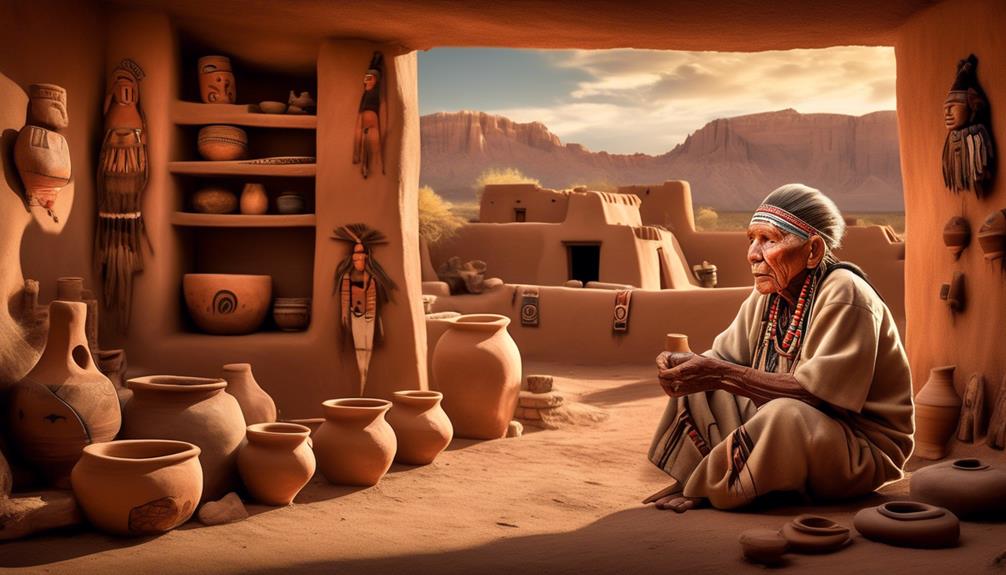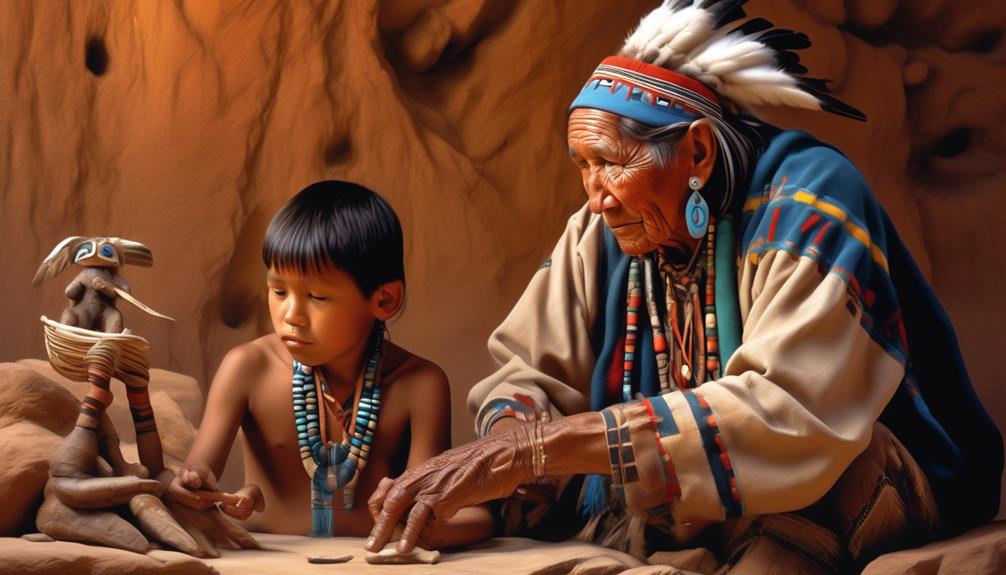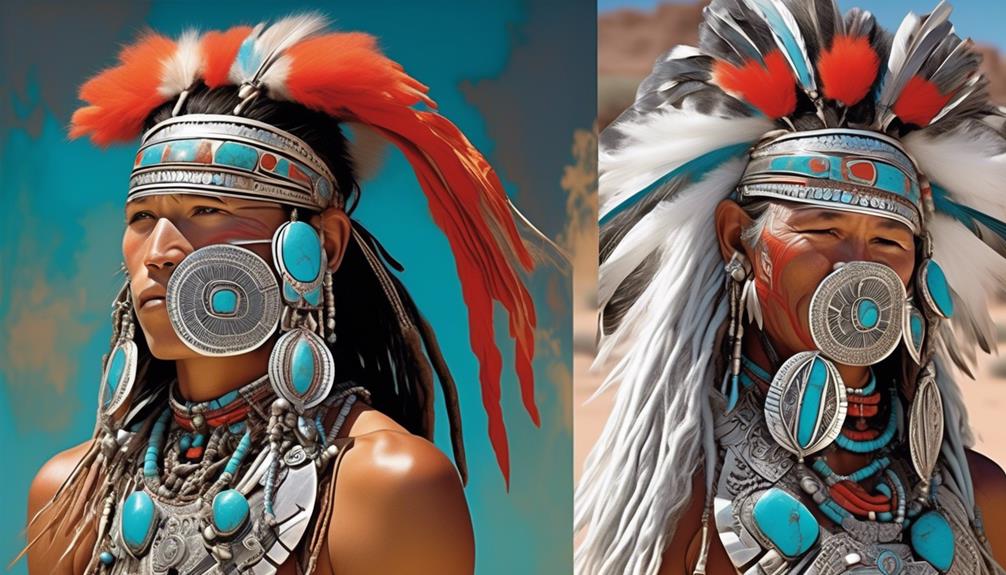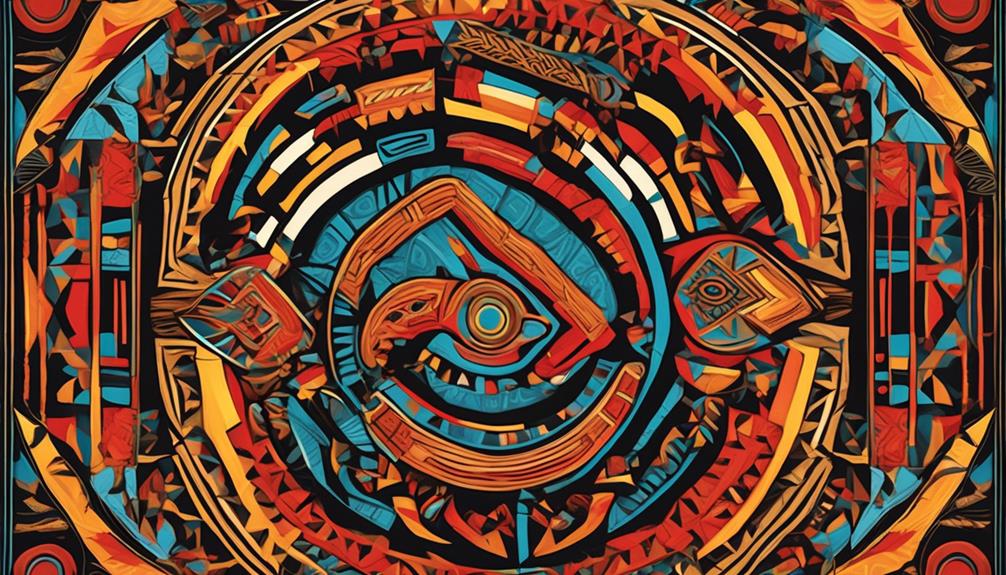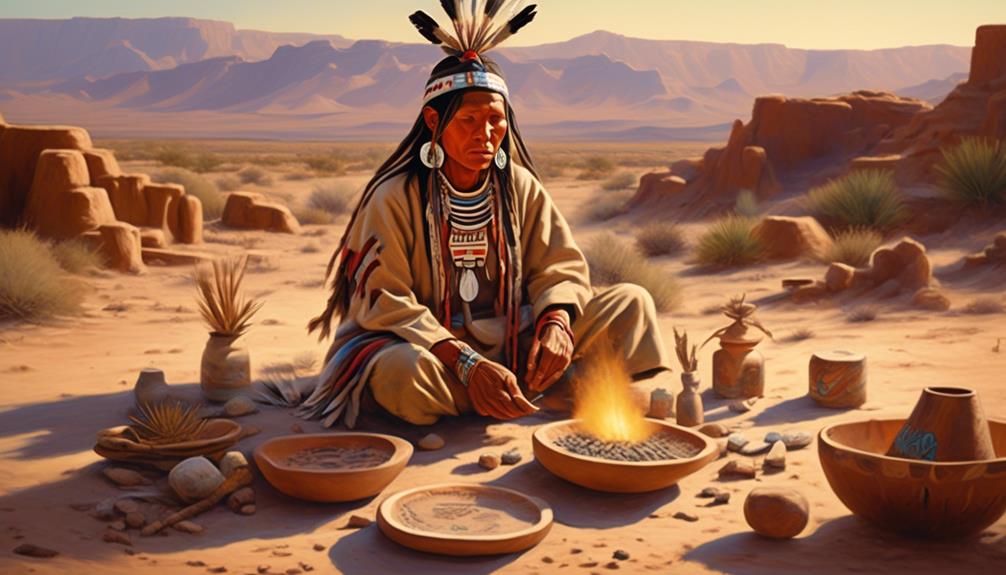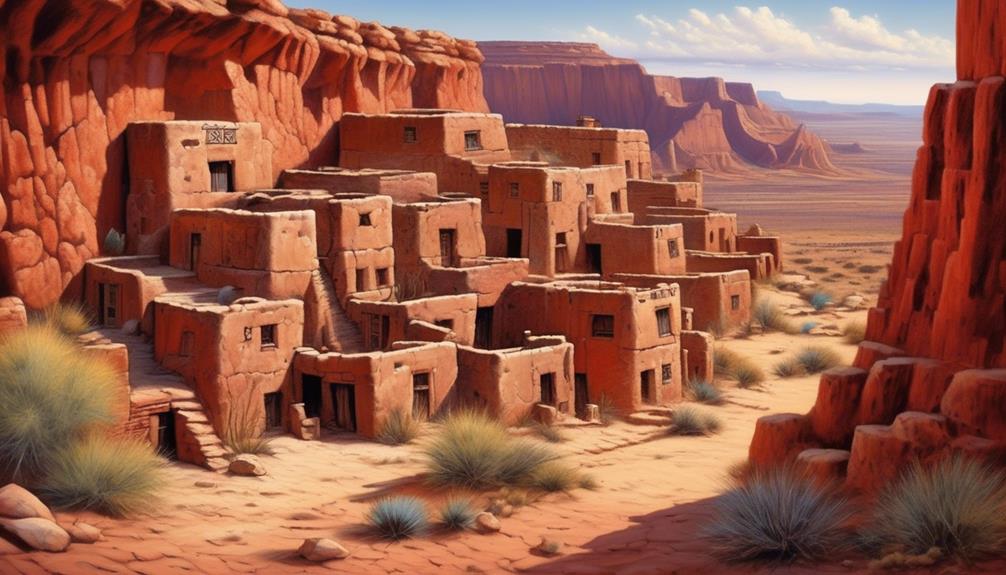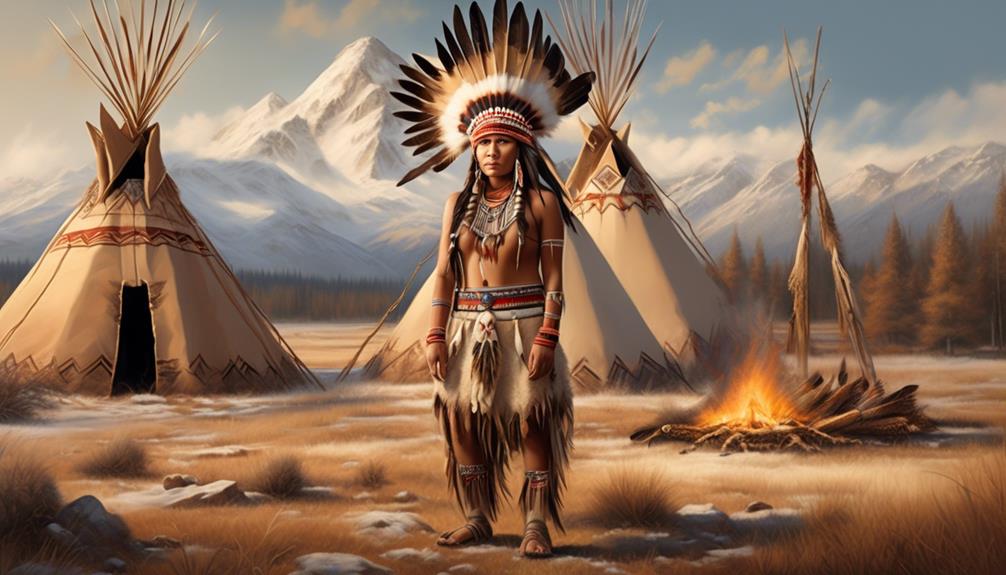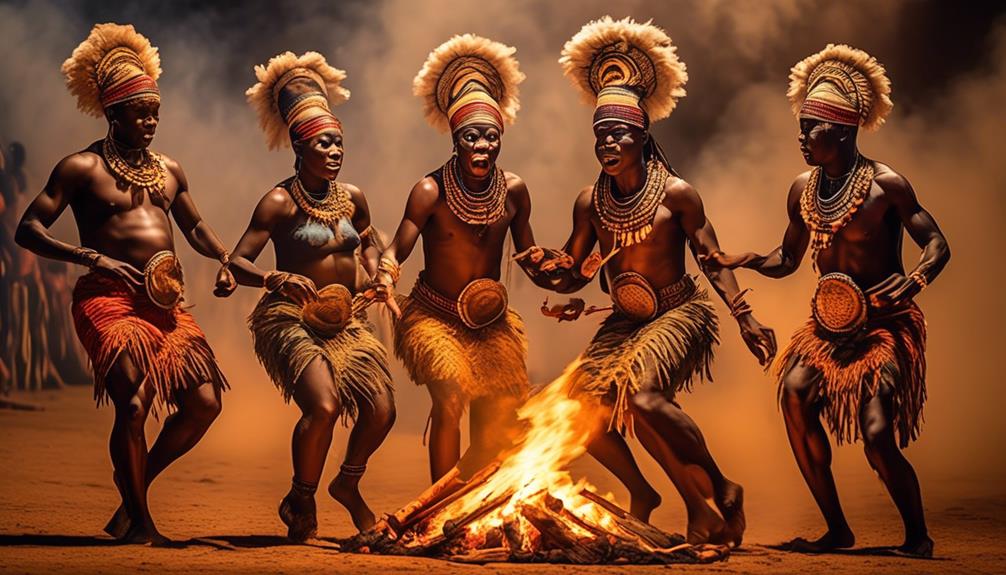As we delve into the intricate history of the Hopi people, it becomes evident that their oral traditions serve as a captivating and enduring reservoir of knowledge. The Hopi tribe’s rich cultural legacy is intricately intertwined with the stories that have been passed down through generations, offering a distinctive perspective on the significance and interpretation of their history.
But what exactly does history signify for the Hopi people, and how does it shape their present and future? Join us as we explore the multifaceted layers of history within the Hopi tribe, unearthing the profound connections between their rituals, ancestral homelands, colonial encounters, and contemporary preservation efforts.
Key Takeaways
- Hopi oral traditions and storytelling play a crucial role in preserving their history, beliefs, and values.
- Ritual practices serve as a means of safeguarding Hopi traditions, language, and values, creating a continuous link between past, present, and future.
- The preservation of ancestral homelands is essential for Hopi cultural practices and recognition, as the land holds the stories of their ancestors and shapes their identity.
- Colonial encounters brought disruptions to Hopi's way of life, but the Hopi Tribe has demonstrated resilience in preserving their cultural heritage through the passing down of oral histories and traditional knowledge.
Hopi Oral Traditions
In Hopi culture, oral traditions serve as the primary means of passing down the tribe's history, beliefs, and values from generation to generation. Oral storytelling is deeply ingrained in our community, with narratives of creation, migration, and spiritual teachings being transmitted through spoken word for centuries. This tradition is the cornerstone of cultural preservation for the Hopi people, as it ensures that our rich heritage endures through time.
Comparatively, oral storytelling in the Hopi tribe contrasts with written historical records prevalent in many other cultures. While the written word is susceptible to loss or destruction, our oral traditions have remained resilient, carrying the essence of our history and identity. Through storytelling, our ancestors' wisdom and experiences are vividly brought to life, fostering a profound connection between past and present.
The significance of oral traditions goes beyond mere historical documentation. It's a living, breathing testament to the resilience and vitality of the Hopi culture, providing a profound sense of continuity and belonging for future generations. As we gather to listen and share these stories, we perpetuate the values and beliefs that define us as the Hopi people.
Historical Significance of Rituals
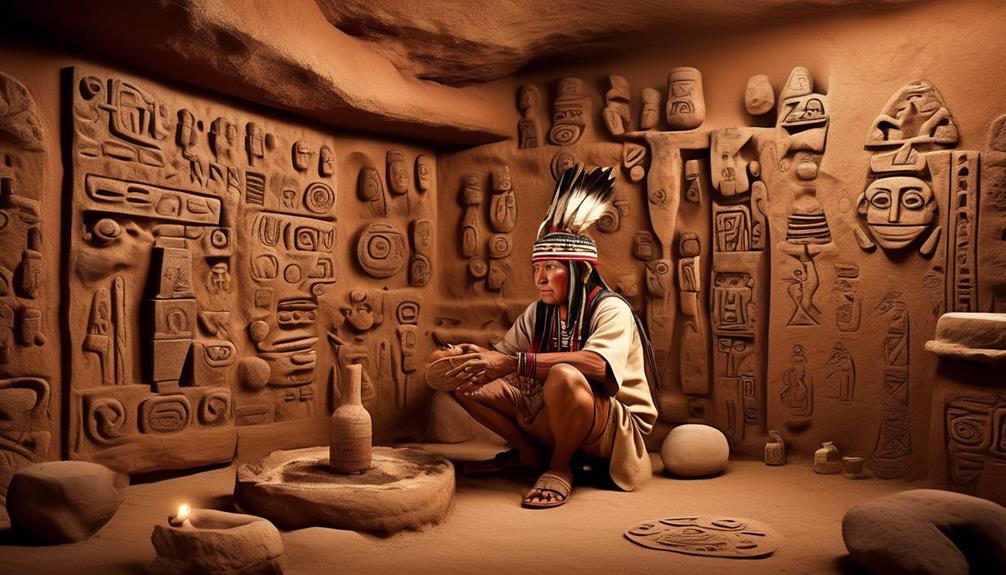
With each intricate movement and rhythmic chant, our ancient rituals weave together the threads of our history, infusing our present with the wisdom and essence of our ancestors. Ritual practices among the Hopi Tribe are deeply rooted in our cultural preservation, serving as a living connection to our past and a guide for our future. These rituals hold a profound historical significance, not only in their ceremonial aspects but also in their role as a repository of our people's collective memory and identity.
| Ritual Practices | Cultural Preservation |
|---|---|
| Passed down through generations, rituals are meticulously preserved to maintain their authenticity and historical relevance. | Our rituals serve as a means of safeguarding our traditions, language, and values, ensuring that the essence of our culture endures through time. |
| By engaging in these time-honored practices, we actively participate in the history of our ancestors, creating a continuous link between past, present, and future. | The preservation of our rituals is integral to the ongoing resilience and vitality of the Hopi Tribe, anchoring us in our heritage while propelling us forward. |
In essence, our ritual practices are not just ceremonies; they are living embodiments of our history, embodying the enduring spirit of our cultural identity.
Connection to Ancestral Homelands
Rooted in the red earth of our ancestral homelands, our connection to these sacred lands shapes our identity and guides our cultural practices with a timeless resonance.
Our ancestral connection to the land runs deep, as it's intertwined with our history, spirituality, and way of life. The landscapes, from the rugged mesas to the expansive deserts, hold the stories of our ancestors and provide a sense of belonging that's irreplaceable.
As stewards of these lands, we're committed to land preservation, ensuring that future generations can also experience the profound connection to our ancestral homelands.
Our traditions, ceremonies, and daily activities are all influenced by the land, fostering a deep respect for nature and a profound understanding of our place within it.
Our connection to our ancestral homelands not only sustains us physically and spiritually but also serves as a constant reminder of the enduring legacy passed down through generations.
The preservation of these lands isn't only essential for our cultural practices but also for the world to recognize the vital role they play in our collective history and future.
Impact of Colonial Encounters
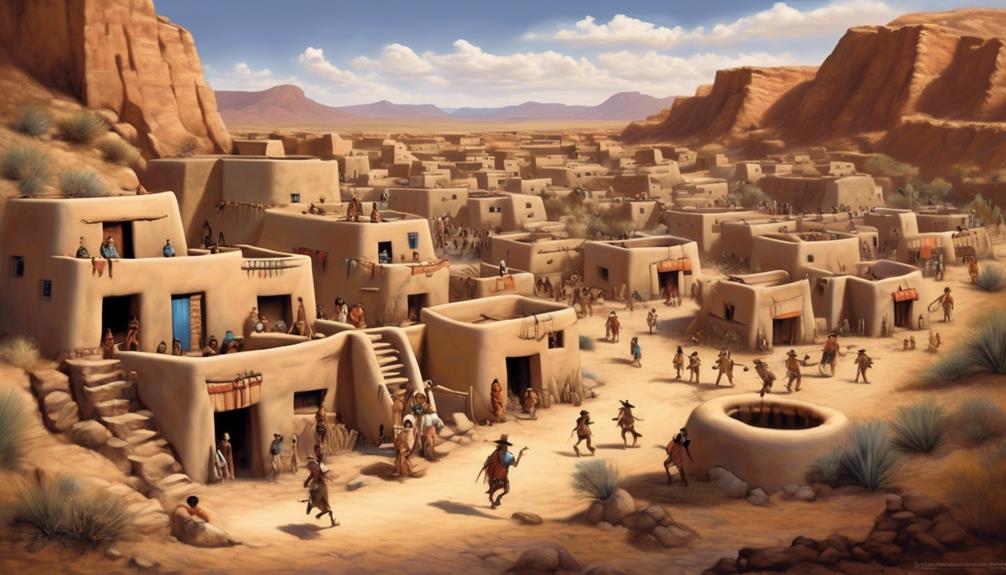
Entwined with the red earth of our ancestral homelands, the arrival of colonial encounters brought profound disruptions to our way of life, challenging the timeless resonance that guides our cultural practices. The impact of colonialism on the Hopi Tribe has been complex and multifaceted.
The imposition of foreign governance systems, forced relocations, and attempts to assimilate our people have all left enduring scars on our cultural identity. The suppression of our traditional ceremonies and the introduction of Western education threatened the very fabric of our existence.
However, despite these challenges, the Hopi Tribe has tenaciously preserved its cultural heritage. Our elders have been instrumental in passing down oral histories, traditional knowledge, and artisanal skills, ensuring the continuity of our customs and spirituality. The resilience of our community in the face of colonial adversity is a testament to the enduring strength of our cultural preservation efforts.
Today, we continue to navigate the legacies of colonialism, striving to reclaim and revitalize our ancestral practices while adapting to the complexities of the modern world.
Contemporary Preservation Efforts
Preserving our cultural heritage in the face of modern challenges requires innovative approaches and collaborative community efforts. As a tribe deeply rooted in tradition, we're continually seeking new ways to ensure the preservation of our cultural practices amidst the ever-changing world.
One of the most effective methods we've employed is the creation of museum exhibits that showcase our traditional crafts, dances, and rituals. These exhibits not only serve as a means of educating outsiders about our way of life but also act as a valuable resource for our own community members, especially the younger generation. By presenting our cultural practices in a museum setting, we're able to protect and promote our heritage in a tangible and accessible manner.
In comparison to the past, contemporary preservation efforts have expanded to include digital archives and interactive displays, allowing for a more immersive experience for visitors. These modern approaches complement our traditional methods of passing down knowledge, ensuring that our cultural legacy remains vibrant and relevant in today's world.
Through these collaborative endeavors, we're actively safeguarding our heritage for future generations.
Frequently Asked Questions
How Does the Hopi Tribe View the Role of Women in Their Oral Traditions and Rituals?
In the Hopi tribe, the role of women in traditional practices is highly respected and integral to the community's spiritual and cultural life.
Women play vital roles in ceremonies, storytelling, and passing down oral traditions.
Their wisdom and guidance are valued, and they hold important leadership positions.
Through their participation in rituals and the preservation of sacred knowledge, women uphold the continuity of the tribe's customs and values.
What Specific Rituals Are Performed to Honor the Hopi Tribe's Ancestral Homelands?
Ritual practices to honor our ancestral lands are integral to our culture. Generations have passed down ceremonies like the Niman Kachina, where we express gratitude for the earth's bounty.
Another significant ritual is the Powamu, focusing on renewal and growth. These ceremonies connect us to our history and reinforce our ties to the land.
Through these rituals, we continue to honor and preserve the legacy of our ancestors and the sanctity of our ancestral lands.
How Did the Hopi Tribe Adapt Their Traditions and Rituals in Response to Colonial Encounters?
We, the Hopi tribe, adapted our traditions and rituals in response to colonial encounters by integrating new elements while preserving our cultural essence.
The cultural adaptation was a way to maintain our traditional rituals while navigating the changes brought by colonial encounters. It allowed us to honor our heritage while also engaging with the evolving world around us.
This approach showcases the resilience and flexibility of our cultural preservation efforts amidst historical challenges.
What Modern Challenges Does the Hopi Tribe Face in Preserving Their Oral Traditions and Rituals?
Challenges in preserving our oral traditions and rituals are significant. Modern influences, like technology and globalization, can threaten their continuity.
However, we're actively engaged in preservation efforts. We're revitalizing language programs, hosting cultural events, and using multimedia to document and share our traditions.
Through these initiatives, we aim to honor our history and ensure that future generations can continue to practice and pass on our rich heritage.
Are There Any Specific Individuals or Groups Within the Hopi Tribe Who Are Leading Efforts to Preserve and Revitalize Their Historical Traditions?
Efforts to preserve and revitalize historical traditions within the Hopi Tribe are led by a range of individuals and groups. Traditional leadership plays a pivotal role in guiding these initiatives, ensuring the preservation of oral traditions and rituals.
Their dedication to the preservation of history is inspiring, serving as a testament to the enduring significance of these traditions. Their efforts are vital in maintaining the cultural identity and legacy of the Hopi Tribe.
Conclusion
As we continue to delve into the rich history of the Hopi tribe, we uncover layers of wisdom and resilience passed down through generations.
The oral traditions, rituals, and connection to ancestral homelands have shaped their identity in the face of colonial encounters.
Today, the Hopi tribe strives to preserve and protect their history, ensuring that their legacy endures for future generations to cherish and learn from.
Mary is a passionate writer who brings creativity and a fresh perspective to our team. Her words have the power to captivate and inspire, making her an essential contributor to our content. Mary’s commitment to storytelling and dedication to promoting Indigenous culture ensures that her work touches the hearts of our readers. We’re fortunate to have her as part of our team.
